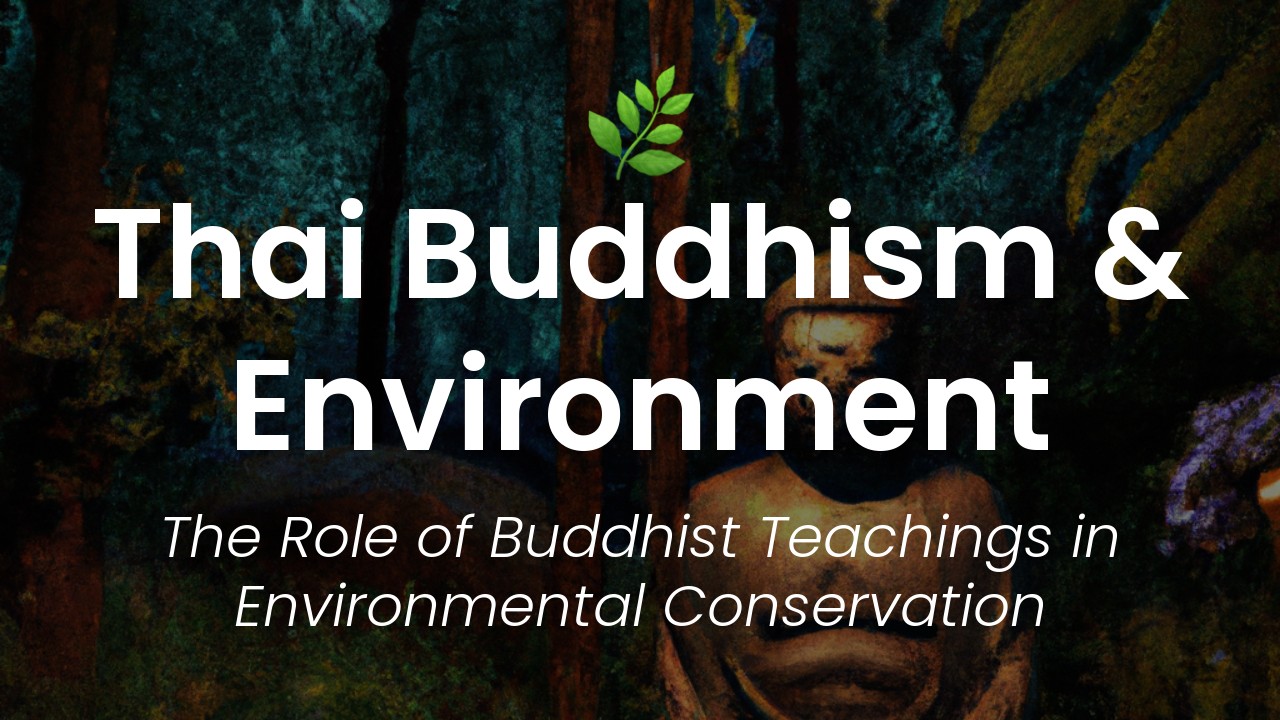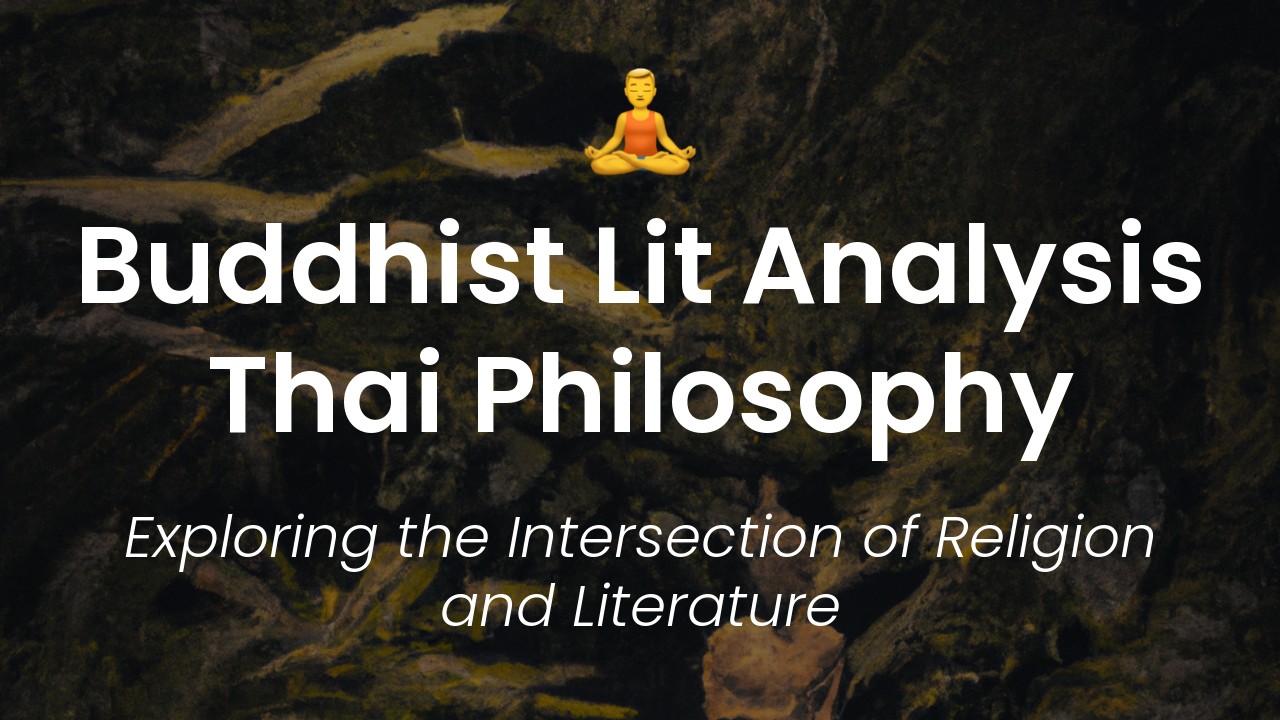I’ve always been fascinated by the relationship between religion and culture. As a Thai native, I’ve grown up with an appreciation for the unique facets of our Buddhist way of life. One of the most striking aspects is how it shapes our approach to the environment.
Thailand is a country of contrasts, from bustling city life to serene beaches and lush green forests. Preserving our natural resources and protecting our delicate ecosystems is of utmost importance. Luckily, Thai Buddhism has played a pivotal role in nurturing environmental ethics throughout history.
It’s no secret that Buddhism is one of the world's major religions, boasting millions of followers worldwide. Founded over 2,500 years ago in India, it soon spread throughout Southeast Asia, encompassing countries such as Thailand, Cambodia, and Laos. Interestingly, while Buddhism has been incorporated into our day-to-day lives, it has also been influential in shaping our attitudes towards nature. Many core Buddhist teachings encourage sustainable development and the importance of maintaining a harmonious relationship with all living beings, including animals and plants.
The Concept of Interconnectedness in Buddhism
One of the fundamental principles of Buddhism is the belief in the interconnectedness of all things. This concept is known as "dependent origination," which teaches that everything in the universe, including humans and nature, are all interconnected and interdependent.
In the context of environmental ethics, this philosophy helps cultivate a sense of respect and responsibility towards nature. When we understand that our actions have a direct impact on the environment, we become more mindful of our behavior and the choices we make.
Practices of Mindfulness and Compassion towards Nature
In Buddhist teachings, mindfulness and compassion are crucial elements for personal growth and development. Practicing mindfulness involves being present in the moment and aware of our thoughts and actions. Compassion, on the other hand, is the act of empathy and understanding towards others.
When applied to environmental ethics, mindfulness and compassion teach us to be aware of our impact on the natural world and to treat nature with kindness and respect. This includes practicing sustainable habits, reducing waste, and promoting environmental conservation.
Monasticism and Environmental Activism in Thailand
In Thailand, Buddhism is deeply rooted in society, and monasteries play a significant role in promoting environmental ethics. Many monastic communities in Thailand have taken on the responsibility of preserving the environment by implementing eco-friendly practices such as organic farming and waste reduction.
Moreover, some monks have even become environmental activists, raising awareness about the importance of conservation efforts and lobbying the government for environmental policies. Such activism shows that Buddhism is not just a passive philosophy but an active force for positive change in the world.
How Thai Buddhism Inspires Environmental Conservation
The Buddhist philosophy of interconnectedness and mindfulness towards nature has inspired many environmental conservation efforts throughout Thailand. One such example is the "Sufficiency Economy" concept introduced by the late King Bhumibol Adulyadej.
This philosophy advocates for self-sufficiency and moderation in all aspects of life, promoting sustainable agriculture and reducing waste. Likewise, many Thai communities have embraced the "Reduce, Reuse, Recycle" motto, which promotes reducing waste and reusing materials to minimize our footprint on the environment.
Eco-Friendly Initiatives in Thai Temples and Communities
Many Thai temples have implemented eco-friendly initiatives like solar-powered energy systems, rainwater collection, organic gardens, and composting. These eco-friendly measures help reduce waste and promote sustainability while educating followers about the importance of environmental conservation.
Moreover, many Thai communities have launched environmental campaigns, such as beach clean-ups, waste reduction projects, and tree planting programs. These community-led activities demonstrate that environmental conservation is not only a personal responsibility but also a matter of civic duty.
Conclusion: Sustainable Living as a Buddhist Practice in Thailand
Thailand's Buddhist philosophy has inspired many environmental conservation efforts throughout the country. The belief in interconnectedness and the practices of mindfulness and compassion towards nature have motivated Thais to become more conscious of their impact on the environment.
From monastic communities to civil society groups, Thai Buddhism has shown that it is not just a spiritual philosophy but an active force for promoting environmental ethics and sustainability. As we face the challenges of climate change and environmental degradation, Thais can look to their Buddhist heritage for guidance in creating a more sustainable future.







